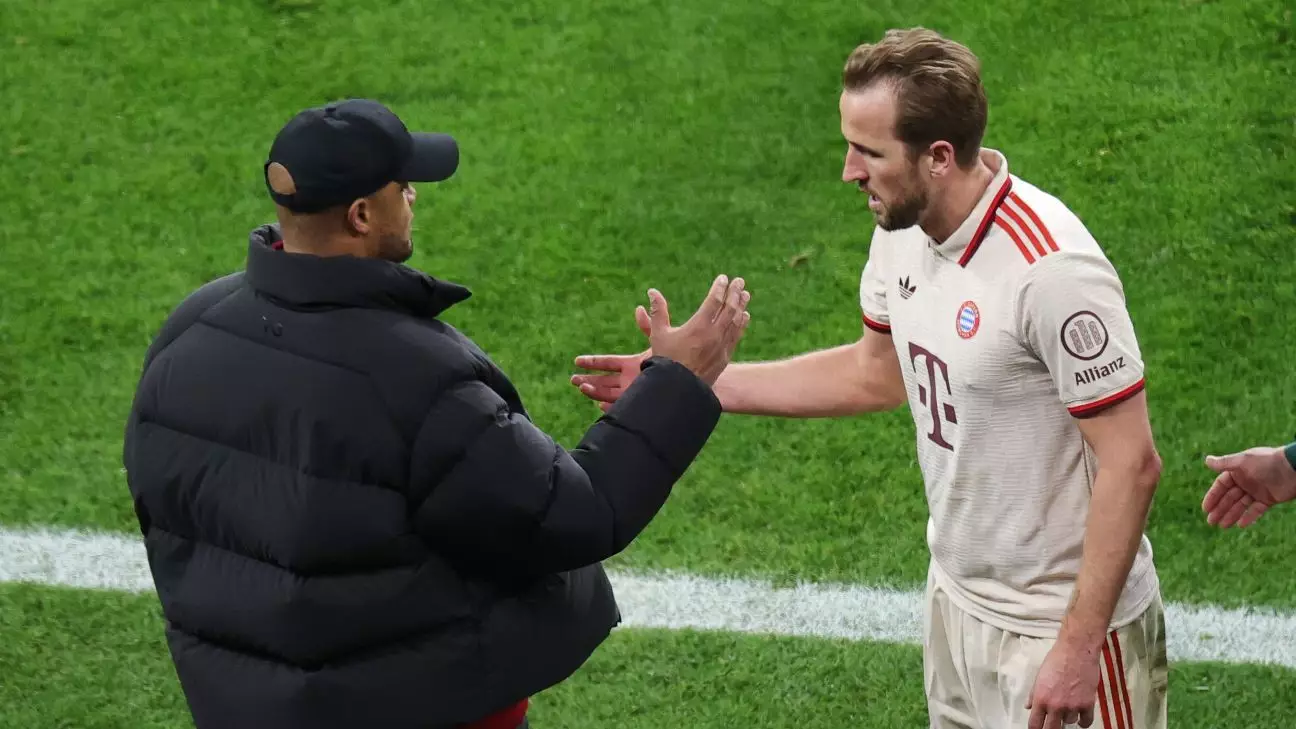Bayern Munich’s ascent to the UEFA Champions League quarterfinals is emblematic of the evolution of its star striker, Harry Kane. Under the guidance of coach Vincent Kompany, Kane’s transformation into a match-winning force has become increasingly evident. Described by Kompany as “better with age,” Kane delivered a compelling performance during their decisive 2-0 victory over Bayer Leverkusen, adding to his impressive tally of 21 goals in the Bundesliga and reaching double digits for the Champions League this season.
Kane’s goal in the 52nd minute showcased not merely his scoring prowess but also his keen tactical awareness. His ability to place the ball in key areas has redefined the expectations for an English striker in Europe. Following his goal, Kane demonstrated unselfishness that resonates with his leadership ethos by setting up Alphonso Davies for the second goal. Such contributions align with Bayern’s broader team philosophy, proving that success isn’t just about individual accolades but also fostering a cooperative spirit.
Beyond Numbers: Contribution to Team Dynamics
What’s truly mesmerizing about Kane is his approach to the game. Detractors may argue that his individual brilliance overshadows team dynamics; however, Kompany emphasizes a different narrative. Kane doesn’t merely score; he plays with the vigor of a youth, running tirelessly and showcasing an impressive work ethic. This is a quality that can’t be measured by numbers alone—Kane revitalizes his teammates with his relentless pursuit of excellence.
His consistency is a key element of Bayern’s gameplay strategy. Kane’s well-rounded skills enable him to adapt during matches, such as when Leverkusen pressed for goals, allowing him to exploit their defensive lapses. Committed to maintaining intensity rather than sitting back on a three-goal aggregate lead, Kane’s mindset is contagious, reminding the team of the collective goal: victory. As he said himself, “we want to keep pushing”—this mantra not only elevates his standard but that of the entire Bayern squad.
The Pressure of Expectations
The win against Leverkusen wasn’t merely a statistical success; it signified a psychological turning point for Bayern. Historically, they had faltered against Leverkusen in recent encounters, including a painful German Cup exit earlier in the season. Therefore, these victories are more than just qualifications for the quarterfinals; they reflect a reclamation of pride and dominance in German football.
Kane’s insight post-match—that Bayern wanted to deepen the pressure on Leverkusen—reveals a tactical maturity and boldness rarely seen in previous seasons. It wasn’t about defending their lead; it was about asserting their supremacy, a critical shift in mentality. The behavioral attributes Kane brings to the pitch illuminate how football is as much about the mental game as it is about technical skill.
A Legacy in the Making
As Kane continues to break records, becoming the first English player to score ten times in a single European Cup season, his legacy is evolving into one defined by perseverance and leadership. The narrative surrounding Kane transcends mere statistics; it speaks to the heart of football—a sport where the desire for glory is accompanied by the grit required to achieve it.
Bayern’s journey through the Champions League with Kane at the helm is not only a litmus test for their capabilities but a larger commentary on how narratives of aging athletes can shift from decline to resurgence. With each match, Harry Kane writes another chapter in his storied career, one that offers both hope and excitement to fans and teammates alike.

